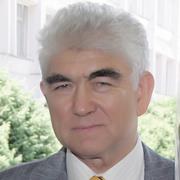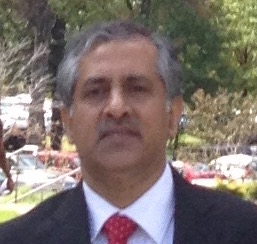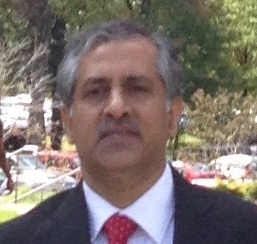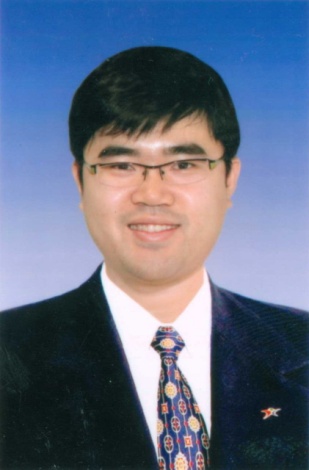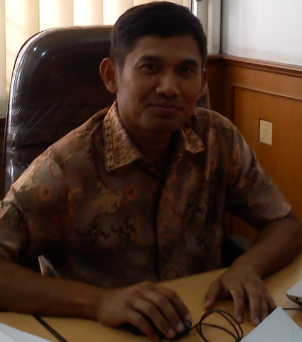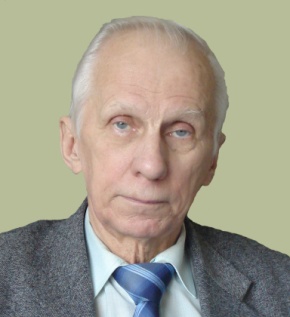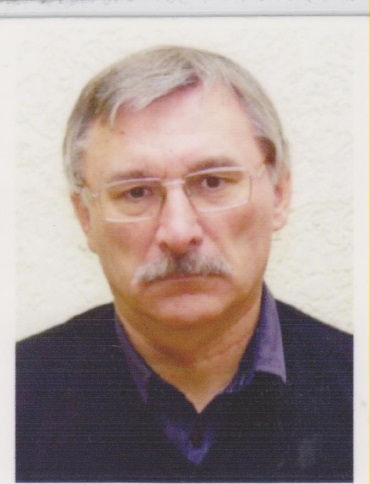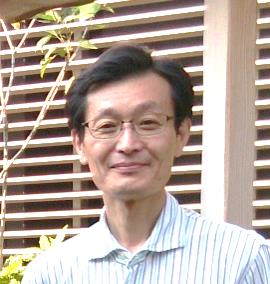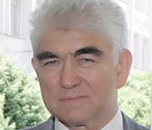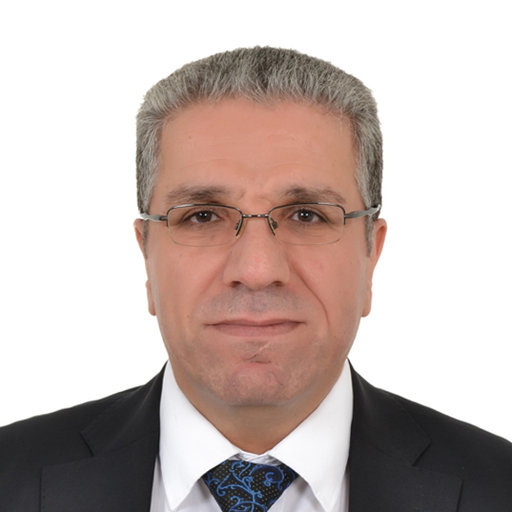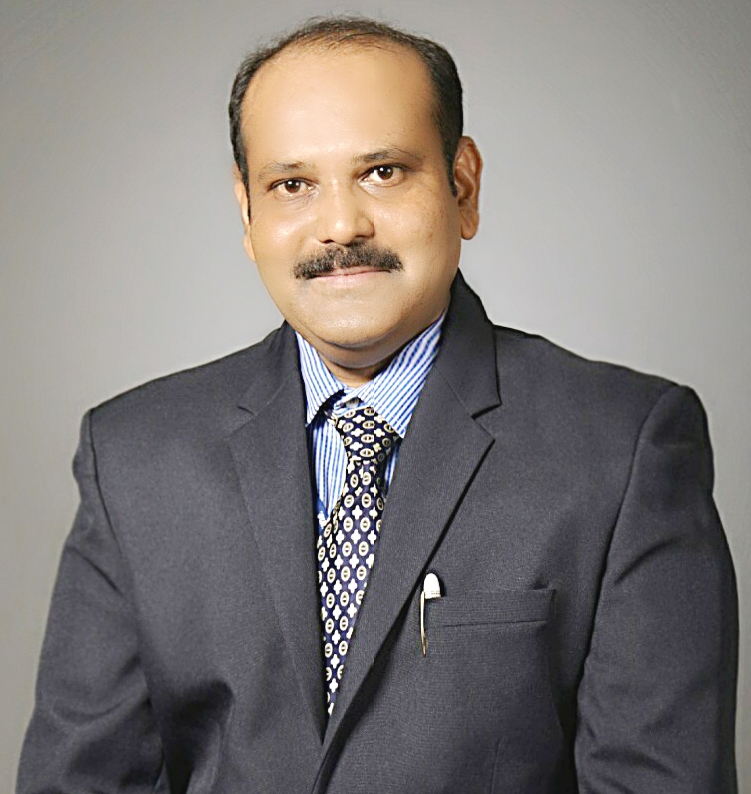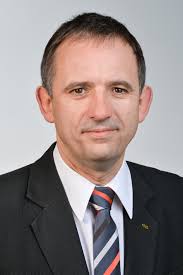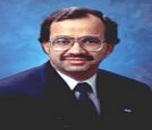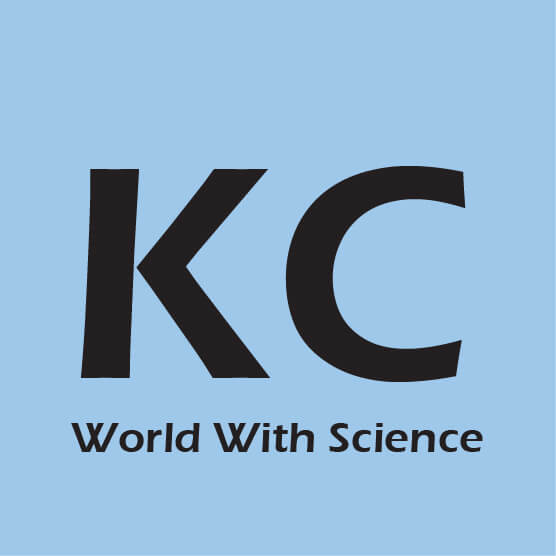Theme: Recent Advancements & Challenges in Petroleum Engineering
Petroleum Engineering 2018
Conferenceseries LLC Ltd. invite all the participants across the globe to attend the "8th International Conference on Petroleum Engineering” (Petroleum Engineering 2018) scheduled during October 15-16, 2018, at Rome, Italy.
Petroleum engineering conference directs towards addressing main issues as well as future strategies of global energy industry. This is going to be the largest and most promising international conference where oil and gas engineering professionals as well as decision makers will come to discuss and debate on various aspects of the challenges, risks and investment opportunities throughout the complete integrated energy and utilities supply chain.
Conferenceseries LLC Ltd. Organise 1000+ Global Events Every Year across USA, Europe & Asia with support from 1000 more scientific societies and Publishes 700+ Open access journals which contains over 100000 eminent personalities, reputed scientists as editorial board and organizing committee members.
Importance & Scope:
Petroleum engineering is a field of engineering concerned with the activities related to the production of hydrocarbons, which can be either crude oil or natural gas. Exploration and Production are deemed to fall within the upstream sector of the oil and gas industry. Exploration, by earth scientists, and petroleum engineering are the oil and gas industry's two main subsurface disciplines, which focus on maximizing economic recovery of hydrocarbons from subsurface reservoirs. Petroleum geology and geophysics focus on provision of a static description of the hydrocarbon reservoir rock, while petroleum engineering focuses on estimation of the recoverable volume of this resource using a detailed understanding of the physical behaviour of oil, water and gas within porous rock at very high pressure.
The combined efforts of geologists and petroleum engineers throughout the life of a hydrocarbon accumulation determine the way in which a reservoir is developed and depleted, and usually they have the highest impact on field economics. Petroleum engineering requires a good knowledge of many other related disciplines, such as geophysics, petroleum geology, formation evaluation (well logging), drilling, economics, reservoir simulation, reservoir engineering, well engineering, artificial lift systems, completions and oil and gas facilities engineering.
Recruitment to the industry has historically been from the disciplines of physics, chemical engineering and mining engineering. Subsequent development training has usually been done within oil companies.
Why Rome?
Rome has the status of a global city. Rome ranked in 2014 as the 14th most visited city in the world, 3rd most visited in the European Union, and the most popular tourist attraction in Italy. Its historic centre is listed by UNESCO as a World Heritage Site. Monuments and museums such as the Vatican Museums and the Colosseum are among the world's most visited tourist destinations with both locations receiving millions of tourists a year. Rome hosted the 1960 Summer Olympics and is the seat of United Nations' Food and Agriculture Organization (FAO).
Rome is a major EU and international financial, cultural and a business centre. With a 2005 GDP of €94.376 billion (US$121.5 billion), the city produces 6.7% of the national GDP (more than any other single city in Italy), and its unemployment rate, lowered from 11.1% to 6.5% between 2001 and 2005, is now one of the lowest rates of all the European Union capital cities. Rome grows +4.4% annually and continues to grow at a higher rate in comparison to any other city in the rest of the country. This means that were Rome a country, it would be the world's 52nd richest country by GDP, near to the size to that of Egypt. Rome also had a 2003 GDP per capita of €29,153 (US$ 37,412), which was second in Italy, (after Milan), and is more than 134.1% of the EU average GDP per capita. Also, Rome hosts the head offices of the vast majority of the major Italian companies and corporations, as well as the headquarters of 3 of the world's 100 largest companies: Enel, Eni, and Telecom Italia.
Why to attend?
Petroleum Engineering conference aims at multi-disciplined audience with diverse commercial, technical, corporate, operations, planning sectors of the upstream oil and gas engineering services. Meet Your Target Market with members from around the world focused on learning and sharing about Upstream Scientists/Engineers; this is your single best opportunity to reach the largest assemblage of participants from the global Oil and gas engineering industry. Conduct demonstrations, distribute information, meet with current and potential customers, make a splash with a new product line, and receive name recognition at this 3-day event. World-renowned speakers, the most recent techniques, tactics, and the newest breakthroughs in the upstream sector of oil and gas engineering are hallmarks of this conference.
Target Audience:
- Petroleum Engineers
- Scientists, Researchers & Technical Staff from petroleum engineering field.
- Professors, Students & Delegates from petroleum engineering Department
- The people who are specialized with geologists, geophysicists, reservoir engineers, production engineers, Chemical Engineers.
- Production engineers are the Potential Exhibitors for the Respective Conferences.
- The American Institute of Mining, Metallurgical, and Petroleum Engineers, Geologists associations, US Oil and Gas Association, The Society of Petroleum Engineers.
Track 1: Advances in Petroleum Engineering
Petroleum engineering is a combination of innovation, exploration and expansion. This major fuels the world and provides the building blocks for every other profession to effectively carry out its work." Energy is a key component in our everyday lives. A secure energy future requires a balance between environmental impact and affordable supply. Petroleum and geosystems engineers are able to address and solve important issues that will lead to energy security and thus are in high demand. Petroleum engineers increasingly use advanced computers, not only in analysis of exploration data and simulation of reservoir behaviour, but also in automation of oilfield production and drilling operations.
Recommended Petroleum Conferences | Oil and Gas Conferences| Petroleum Engineering 2018|Oil and Gas 2018 |Oil and Gas 2018 USA|Oil Conference 2018|Gas Conference 2018|Petroleum industry Conference| Oil and Gas Engineering Conference|World Petroleum Congress|Petroleum Geology Conference|Upcoming Petroleum Conference|Petroleum Safety Conference
Related Conferences
3rd World Congress on Petroleum and Refinery, May 24-25, 2018, Singapore; 9th International Conference and Expo on Oil & Gas, Aug 09-10, 2018, Madrid, Spain; 10th Asia Pacific Congress on Oil & Gas, September 17-19, 2018, Beijing, China; 9th Annual Congress & Expo on Biofuels and Bioenergy, April 16-17, 2018, Dubai, UAE; 11th World Bioenergy Congress & Expo, July 2-4, 2018, Frankfurt, Germany; 5th International Conference on Petroleum and Petrochemical Engineering, January 14-16, 2018, Bali, Indonesia; 2nd International Conference on Gas, Oil and Petroleum Engineering, February 26-28, 2018, Houston, USA; Petroleum Exhibition & Conference of Mexico, Mar 13-15, 2018, Villahermosa, Mexico; 26th Annual Middle East Petroleum & Gas Conference, April 22-24, 2018, Abu Dhabi, UAE; 22nd International Petroleum Data Integration, Information and Data Management Conference, May 22 - 24, 2018, Houston, Texas, USA;
Societies & Association
Europe: European Petroleum Industry Association (EUROPIA), Association of Dutch Suppliers in the Oil and Gas Industry (IRO), United Kingdom Petroleum Industry Association (UKPIA), The Norwegian Petroleum Industry Association.
Asia: Japanese Association for Petroleum Technology, Southeast Asia Petroleum Exploration Society, Indian Association of Petroleum Geoscientists, International Society for Rock Mechanics (ISRM), South Korea.
USA: Petroleum Society of Canada (PETSOC), Society of Petroleum Evaluation Engineers (SPEE), American Rock Mechanics Association (ARMA), International Society of Offshore and Polar Engineers (ISOPE)
Track 2: Fuels and Refining
Generally, crude petroleum is heated and changed into a gas. The hot gases are passed into the bottom of a distillation column and become cooler as they move up the height of the column. As the gases cool below their boiling point, they condense into a liquid. The liquids are then drawn off the distilling column at specific heights, ranging from heavy resides at the bottom, raw diesel fuels in the mid-sections, and raw gasoline at the top. These raw fractions are then processed further to make several different finished products.
Although all fractions of petroleum find uses, the greatest demand is for gasoline. One barrel of crude petroleum contains only 30-40% gasoline. Transportation demands require that over 50% of the crude oil be "converted" into gasoline. To meet this demand some petroleum fractions must be converted to gasoline. This may be done by cracking-breaking down large molecules of heavy heating oil and resides; reforming- changing molecular structures of low quality gasoline molecules; and isomerization -rearranging the atoms in a molecule so that the product has the same chemical formula but has a different structure, such as converting normal butane to isobutene.
Generally, the simplest refineries consist of crude, vacuum, reforming and some hydro treating capacity. The next level of complexity adds cat cracking and some additional hydro treating. The most complex refineries add coking, more hydro treating and hydrocracking.
Recommended Petroleum Conferences | Oil and Gas Conferences| Petroleum Engineering 2018|Oil and Gas 2018 |Oil and Gas 2018 USA|Oil Conference 2018|Gas Conference 2018|Petroleum industry Conference| Oil and Gas Engineering Conference|World Petroleum Congress|Petroleum Geology Conference|Upcoming Petroleum Conference|Petroleum Safety Conference
Related Conferences
3rd World Congress on Petroleum and Refinery, May 24-25, 2018, Singapore; 9th International Conference and Expo on Oil & Gas, Aug 09-10, 2018, Madrid, Spain; 10th Asia Pacific Congress on Oil & Gas, September 17-19, 2018, Beijing, China; 9th Annual Congress & Expo on Biofuels and Bioenergy, April 16-17, 2018, Dubai, UAE; 11th World Bioenergy Congress & Expo, July 2-4, 2018, Frankfurt, Germany; 5th International Conference on Petroleum and Petrochemical Engineering, January 14-16, 2018, Bali, Indonesia; 2nd International Conference on Gas, Oil and Petroleum Engineering, February 26-28, 2018, Houston, USA; Petroleum Exhibition & Conference of Mexico, Mar 13-15, 2018, Villahermosa, Mexico; 26th Annual Middle East Petroleum & Gas Conference, April 22-24, 2018, Abu Dhabi, UAE; 22nd International Petroleum Data Integration, Information and Data Management Conference, May 22 - 24, 2018, Houston, Texas, USA;
Societies & Association
Europe: European Petroleum Industry Association (EUROPIA), Association of Dutch Suppliers in the Oil and Gas Industry (IRO), United Kingdom Petroleum Industry Association (UKPIA), The Norwegian Petroleum Industry Association.
Asia: Japanese Association for Petroleum Technology, Southeast Asia Petroleum Exploration Society, Indian Association of Petroleum Geoscientists, International Society for Rock Mechanics (ISRM), South Korea.
USA: Petroleum Society of Canada (PETSOC), Society of Petroleum Evaluation Engineers (SPEE), American Rock Mechanics Association (ARMA), International Society of Offshore and Polar Engineers (ISOPE).
Track 3: Petroleum Geology
Petroleum geology is the study of origin, occurrence, movement, accumulation, and exploration of hydrocarbon fuels. It refers to the specific set of geological disciplines that are applied to the search for hydrocarbons (oil exploration).
Petroleum geology is principally concerned with the evaluation of seven key elements in sedimentary basins:
A structural trap, where a fault has juxtaposed a porous and permeable reservoir against an impermeable seal. Oil (shown in red) accumulates against the seal, to the depth of the base of the seal. Any further oil migrating in from the source will escape to the surface and seep.
Evaluation of the source uses the methods of geochemistry to quantify the nature of organic-rich rocks which contain the precursors to hydrocarbons, such that the type and quality of expelled hydrocarbon can be assessed. The reservoir is a porous and permeable lithological unit or set of units that holds the hydrocarbon reserves. Analysis of reservoirs at the simplest level requires an assessment of their porosity (to calculate the volume of in situ hydrocarbons) and their permeability (to calculate how easily hydrocarbons will flow out of them). Some of the key disciplines used in reservoir analysis are the fields of structural analysis, stratigraphy, sedimentology, and reservoir engineering. The seal, or cap rock, is a unit with low permeability that impedes the escape of hydrocarbons from the reservoir rock. Common seals include evaporites, chalks and shales. Analysis of seals involves assessment of their thickness and extent, such that their effectiveness can be quantified.
The trap is the stratigraphic or structural feature that ensures the juxtaposition of reservoir and seal such that hydrocarbons remain trapped in the subsurface, rather than escaping (due to their natural buoyancy) and being lost. Analysis of maturation involves assessing the thermal history of the source rock in order to make predictions of the amount and timing of hydrocarbon generation & expulsion.
Finally, careful studies of migration reveal information on how hydrocarbons move from source to reservoir and help quantify the source (or kitchen) of hydrocarbons in a particular area.
Recommended Petroleum Conferences | Oil and Gas Conferences| Petroleum Engineering 2018|Oil and Gas 2018 |Oil and Gas 2018 USA|Oil Conference 2018|Gas Conference 2018|Petroleum industry Conference| Oil and Gas Engineering Conference|World Petroleum Congress|Petroleum Geology Conference|Upcoming Petroleum Conference|Petroleum Safety Conference
Related Conferences
3rd World Congress on Petroleum and Refinery, May 24-25, 2018, Singapore; 9th International Conference and Expo on Oil & Gas, Aug 09-10, 2018, Madrid, Spain; 10th Asia Pacific Congress on Oil & Gas, September 17-19, 2018, Beijing, China; 9th Annual Congress & Expo on Biofuels and Bioenergy, April 16-17, 2018, Dubai, UAE; 11th World Bioenergy Congress & Expo, July 2-4, 2018, Frankfurt, Germany; 5th International Conference on Petroleum and Petrochemical Engineering, January 14-16, 2018, Bali, Indonesia; 2nd International Conference on Gas, Oil and Petroleum Engineering, February 26-28, 2018, Houston, USA; Petroleum Exhibition & Conference of Mexico, Mar 13-15, 2018, Villahermosa, Mexico; 26th Annual Middle East Petroleum & Gas Conference, April 22-24, 2018, Abu Dhabi, UAE; 22nd International Petroleum Data Integration, Information and Data Management Conference, May 22 - 24, 2018, Houston, Texas, USA;
Societies & Association
Europe: European Petroleum Industry Association (EUROPIA), Association of Dutch Suppliers in the Oil and Gas Industry (IRO), United Kingdom Petroleum Industry Association (UKPIA), The Norwegian Petroleum Industry Association.
Asia: Japanese Association for Petroleum Technology, Southeast Asia Petroleum Exploration Society, Indian Association of Petroleum Geoscientists, International Society for Rock Mechanics (ISRM), South Korea.
USA: Petroleum Society of Canada (PETSOC), Society of Petroleum Evaluation Engineers (SPEE), American Rock Mechanics Association (ARMA), International Society of Offshore and Polar Engineers (ISOPE).
Track 4: Petroleum Distillation and Refining
Petroleum refining processes are the chemical engineering processes and other facilities used in petroleum refineries (also referred to as oil refineries) to transform crude oil into useful products such as liquefied petroleum gas (LPG), gasoline or petrol, kerosene, jet fuel, diesel oil and fuel oils.
Petroleum refineries are very large industrial complexes that involve many different processing units and auxiliary facilities such as utility units and storage tanks. Each refinery has its own unique arrangement and combination of refining processes largely determined by the refinery location, desired products and economic considerations.
Recommended Petroleum Conferences | Oil and Gas Conferences| Petroleum Engineering 2018|Oil and Gas 2018 |Oil and Gas 2018 USA|Oil Conference 2018|Gas Conference 2018|Petroleum industry Conference| Oil and Gas Engineering Conference|World Petroleum Congress|Petroleum Geology Conference|Upcoming Petroleum Conference|Petroleum Safety Conference
Related Conferences
3rd World Congress on Petroleum and Refinery, May 24-25, 2018, Singapore; 9th International Conference and Expo on Oil & Gas, Aug 09-10, 2018, Madrid, Spain; 10th Asia Pacific Congress on Oil & Gas, September 17-19, 2018, Beijing, China; 9th Annual Congress & Expo on Biofuels and Bioenergy, April 16-17, 2018, Dubai, UAE; 11th World Bioenergy Congress & Expo, July 2-4, 2018, Frankfurt, Germany; 5th International Conference on Petroleum and Petrochemical Engineering, January 14-16, 2018, Bali, Indonesia; 2nd International Conference on Gas, Oil and Petroleum Engineering, February 26-28, 2018, Houston, USA; Petroleum Exhibition & Conference of Mexico, Mar 13-15, 2018, Villahermosa, Mexico; 26th Annual Middle East Petroleum & Gas Conference, April 22-24, 2018, Abu Dhabi, UAE; 22nd International Petroleum Data Integration, Information and Data Management Conference, May 22 - 24, 2018, Houston, Texas, USA;
Societies & Association
Europe: European Petroleum Industry Association (EUROPIA), Association of Dutch Suppliers in the Oil and Gas Industry (IRO), United Kingdom Petroleum Industry Association (UKPIA), The Norwegian Petroleum Industry Association.
Asia: Japanese Association for Petroleum Technology, Southeast Asia Petroleum Exploration Society, Indian Association of Petroleum Geoscientists, International Society for Rock Mechanics (ISRM), South Korea.
USA: Petroleum Society of Canada (PETSOC), Society of Petroleum Evaluation Engineers (SPEE), American Rock Mechanics Association (ARMA), International Society of Offshore and Polar Engineers (ISOPE).
Track 5: Exploration, Production and Storage
The oil and gas industry is usually divided into three major sectors: upstream, midstream and downstream. The upstream oil sector is also commonly known as the exploration and production (E&P) sector. The upstream sector includes the searching for potential underground or underwater crude oil and natural gas fields, drilling of exploratory wells, and subsequently drilling and operating the wells that recover and bring the crude oil and/or raw natural gas to the surface. There has been a significant shift toward including unconventional gas as a part of the upstream sector, and corresponding developments in liquefied natural gas (LNG) processing and transport. Upstream Industry has traditionally experienced the highest quantum of Mergers, Acquisitions and Divestitures. M&A activity for upstream oil and gas deals in 2012 totalled $254 billion in 679 deals. A large chunk of this M&A, 33% in 2012, was driven by the Unconventional/shale boom especially in the US followed by the Russian Federation and Canada. The aggregate value of Upstream E&P assets available for sale (Deals in Play) reached a record-high of $135 billion in Q3-2013. The value of Deals in Play doubled from $46 billion in 2009 to $90 billion in 2010. With on-going M&A activity the level remained almost the same reaching $85 billion in Dec-2012. However, the first half of 2013 saw approximately $48 billion of net new assets coming on the market. Remarkably, the total value of Deals in Play in Q3-2013 nearly tripled over 2009 at $46 billion, in less than four years.
Recommended Petroleum Conferences | Oil and Gas Conferences| Petroleum Engineering 2018|Oil and Gas 2018 |Oil and Gas 2018 USA|Oil Conference 2018|Gas Conference 2018|Petroleum industry Conference| Oil and Gas Engineering Conference|World Petroleum Congress|Petroleum Geology Conference|Upcoming Petroleum Conference|Petroleum Safety Conference
Related Conferences
3rd World Congress on Petroleum and Refinery, May 24-25, 2018, Singapore; 9th International Conference and Expo on Oil & Gas, Aug 09-10, 2018, Madrid, Spain; 10th Asia Pacific Congress on Oil & Gas, September 17-19, 2018, Beijing, China; 9th Annual Congress & Expo on Biofuels and Bioenergy, April 16-17, 2018, Dubai, UAE; 11th World Bioenergy Congress & Expo, July 2-4, 2018, Frankfurt, Germany; 5th International Conference on Petroleum and Petrochemical Engineering, January 14-16, 2018, Bali, Indonesia; 2nd International Conference on Gas, Oil and Petroleum Engineering, February 26-28, 2018, Houston, USA; Petroleum Exhibition & Conference of Mexico, Mar 13-15, 2018, Villahermosa, Mexico; 26th Annual Middle East Petroleum & Gas Conference, April 22-24, 2018, Abu Dhabi, UAE; 22nd International Petroleum Data Integration, Information and Data Management Conference, May 22 - 24, 2018, Houston, Texas, USA;
Societies & Association
Europe: European Petroleum Industry Association (EUROPIA), Association of Dutch Suppliers in the Oil and Gas Industry (IRO), United Kingdom Petroleum Industry Association (UKPIA), The Norwegian Petroleum Industry Association.
Asia: Japanese Association for Petroleum Technology, Southeast Asia Petroleum Exploration Society, Indian Association of Petroleum Geoscientists, International Society for Rock Mechanics (ISRM), South Korea.
USA: Petroleum Society of Canada (PETSOC), Society of Petroleum Evaluation Engineers (SPEE), American Rock Mechanics Association (ARMA), International Society of Offshore and Polar Engineers (ISOPE).
Track 6: Reservoir Engineering
Reservoir engineering is a branch of petroleum engineering that applies scientific principles to the drainage problems arising during the development and production of oil and gas reservoirs so as to obtain a high economic recovery. The working tools of the reservoir engineer are subsurface geology, applied mathematics, and the basic laws of physics and chemistry governing the behaviour of liquid and vapour phases of crude oil, natural gas, and water in reservoir rock.
Of particular interest to reservoir engineers is generating accurate reserves estimates for use in financial reporting to the SEC and other regulatory bodies. Other job responsibilities include numerical reservoir modelling, production forecasting, well testing, well drilling and work over planning, economic modelling, and PVT analysis of reservoir fluids.
Reservoir engineers also play a central role in field development planning, recommending appropriate and cost effective reservoir depletion schemes such as waterflooding or gas injection to maximize hydrocarbon recovery. Due to legislative changes in many hydrocarbon producing countries, they are also involved in the design and implementation of carbon sequestration projects in order to minimise the emission of greenhouse gases.
Recommended Petroleum Conferences | Oil and Gas Conferences| Petroleum Engineering 2018|Oil and Gas 2018 |Oil and Gas 2018 USA|Oil Conference 2018|Gas Conference 2018|Petroleum industry Conference| Oil and Gas Engineering Conference|World Petroleum Congress|Petroleum Geology Conference|Upcoming Petroleum Conference|Petroleum Safety Conference
Related Conferences
3rd World Congress on Petroleum and Refinery, May 24-25, 2018, Singapore; 9th International Conference and Expo on Oil & Gas, Aug 09-10, 2018, Madrid, Spain; 10th Asia Pacific Congress on Oil & Gas, September 17-19, 2018, Beijing, China; 9th Annual Congress & Expo on Biofuels and Bioenergy, April 16-17, 2018, Dubai, UAE; 11th World Bioenergy Congress & Expo, July 2-4, 2018, Frankfurt, Germany; 5th International Conference on Petroleum and Petrochemical Engineering, January 14-16, 2018, Bali, Indonesia; 2nd International Conference on Gas, Oil and Petroleum Engineering, February 26-28, 2018, Houston, USA; Petroleum Exhibition & Conference of Mexico, Mar 13-15, 2018, Villahermosa, Mexico; 26th Annual Middle East Petroleum & Gas Conference, April 22-24, 2018, Abu Dhabi, UAE; 22nd International Petroleum Data Integration, Information and Data Management Conference, May 22 - 24, 2018, Houston, Texas, USA;
Europe: European Petroleum Industry Association (EUROPIA), Association of Dutch Suppliers in the Oil and Gas Industry (IRO), United Kingdom Petroleum Industry Association (UKPIA), The Norwegian Petroleum Industry Association.
Asia: Japanese Association for Petroleum Technology, Southeast Asia Petroleum Exploration Society, Indian Association of Petroleum Geoscientists, International Society for Rock Mechanics (ISRM), South Korea.
USA: Petroleum Society of Canada (PETSOC), Society of Petroleum Evaluation Engineers (SPEE), American Rock Mechanics Association (ARMA), International Society of Offshore and Polar Engineers (ISOPE).
Track 7: Transporting Oil and Gas
Crude oil tankers are used to transport crude oil from fields in the Middle East, North Sea, Africa, and Latin America to refineries around the world. Product tankers carry refined products from refineries to terminals. Tankers range in size from the small vessels used to transport refined products to huge crude carriers. Tanker sizes are expressed in terms of deadweight (dwt) or cargo tons. The smallest tankers are General Purpose which range from 10 to 25,000 tons.
These tankers are used to transport refined products. The Large Range and Very Large Crude Carriers (VLCC) are employed in international crude oil trade. The size of tanker that can be used in any trade (commercial voyage between a port of origin and destination) is dependent on the tanker's length and loaded depth and the size of the loading and unloading ports.
The larger ships are used because they reduce the cost to transport a barrel of crude oil. Oil Tankers: Today's cutting-edge tankers are the product of a commitment to safety combined with the power of computer-assisted design. As a result, the new ships traveling the seas are stronger, more man euverable, and more durable than their predecessors.
Recommended Petroleum Conferences | Oil and Gas Conferences| Petroleum Engineering 2018|Oil and Gas 2018 |Oil and Gas 2018 USA|Oil Conference 2018|Gas Conference 2018|Petroleum industry Conference| Oil and Gas Engineering Conference|World Petroleum Congress|Petroleum Geology Conference|Upcoming Petroleum Conference|Petroleum Safety Conference
Related Conferences
3rd World Congress on Petroleum and Refinery, May 24-25, 2018, Singapore; 9th International Conference and Expo on Oil & Gas, Aug 09-10, 2018, Madrid, Spain; 10th Asia Pacific Congress on Oil & Gas, September 17-19, 2018, Beijing, China; 9th Annual Congress & Expo on Biofuels and Bioenergy, April 16-17, 2018, Dubai, UAE; 11th World Bioenergy Congress & Expo, July 2-4, 2018, Frankfurt, Germany; 5th International Conference on Petroleum and Petrochemical Engineering, January 14-16, 2018, Bali, Indonesia; 2nd International Conference on Gas, Oil and Petroleum Engineering, February 26-28, 2018, Houston, USA; Petroleum Exhibition & Conference of Mexico, Mar 13-15, 2018, Villahermosa, Mexico; 26th Annual Middle East Petroleum & Gas Conference, April 22-24, 2018, Abu Dhabi, UAE; 22nd International Petroleum Data Integration, Information and Data Management Conference, May 22 - 24, 2018, Houston, Texas, USA;
Societies & Association
Europe: European Petroleum Industry Association (EUROPIA), Association of Dutch Suppliers in the Oil and Gas Industry (IRO), United Kingdom Petroleum Industry Association (UKPIA), The Norwegian Petroleum Industry Association.
Asia: Japanese Association for Petroleum Technology, Southeast Asia Petroleum Exploration Society, Indian Association of Petroleum Geoscientists, International Society for Rock Mechanics (ISRM), South Korea.
USA: Petroleum Society of Canada (PETSOC), Society of Petroleum Evaluation Engineers (SPEE), American Rock Mechanics Association (ARMA), International Society of Offshore and Polar Engineers (ISOPE).
Track 8: Petrochemistry
Petrochemistry is made of a mixture of different hydrocarbons. Additionally petroleum chemistry contains several more complex hydrocarbons such as asphaltenes. Each geographical location and hence oil field will produce a raw petroleum with a different combination of molecules depending upon the overall percentage of each hydrocarbon it contains, this directly affects the colouration and viscosity of the petroleum chemistry. In extremely large quantities petroleum has been produced a lot of years by natural changes in organic materials. Offering the necessary building blocks petrochemicals allow downstream industries to originate and improve the quality of life. Plant oils will replace petroleum in coming year.
Recommended Petroleum Conferences | Oil and Gas Conferences| Petroleum Engineering 2018|Oil and Gas 2018 |Oil and Gas 2018 USA|Oil Conference 2018|Gas Conference 2018|Petroleum industry Conference| Oil and Gas Engineering Conference|World Petroleum Congress|Petroleum Geology Conference|Upcoming Petroleum Conference|Petroleum Safety Conference
Related Conferences
3rd World Congress on Petroleum and Refinery, May 24-25, 2018, Singapore; 9th International Conference and Expo on Oil & Gas, Aug 09-10, 2018, Madrid, Spain; 10th Asia Pacific Congress on Oil & Gas, September 17-19, 2018, Beijing, China; 9th Annual Congress & Expo on Biofuels and Bioenergy, April 16-17, 2018, Dubai, UAE; 11th World Bioenergy Congress & Expo, July 2-4, 2018, Frankfurt, Germany; 5th International Conference on Petroleum and Petrochemical Engineering, January 14-16, 2018, Bali, Indonesia; 2nd International Conference on Gas, Oil and Petroleum Engineering, February 26-28, 2018, Houston, USA; Petroleum Exhibition & Conference of Mexico, Mar 13-15, 2018, Villahermosa, Mexico; 26th Annual Middle East Petroleum & Gas Conference, April 22-24, 2018, Abu Dhabi, UAE; 22nd International Petroleum Data Integration, Information and Data Management Conference, May 22 - 24, 2018, Houston, Texas, USA;
Societies & Association
Europe: European Petroleum Industry Association (EUROPIA), Association of Dutch Suppliers in the Oil and Gas Industry (IRO), United Kingdom Petroleum Industry Association (UKPIA), The Norwegian Petroleum Industry Association.
Asia: Japanese Association for Petroleum Technology, Southeast Asia Petroleum Exploration Society, Indian Association of Petroleum Geoscientists, International Society for Rock Mechanics (ISRM), South Korea.
USA: Petroleum Society of Canada (PETSOC), Society of Petroleum Evaluation Engineers (SPEE), American Rock Mechanics Association (ARMA), International Society of Offshore and Polar Engineers (ISOPE).
Track 9: Processing units used in refineries
Petroleum refining processes are the chemical engineering processes and other facilities used in petroleum refineries (also referred to as oil refineries) to transform crude oil into useful products such as liquefied petroleum gas(LPG), gasoline or petrol, kerosene, jet fuel, diesel oil and fuel oils. Petroleum refineries are very large industrial complexes that involve many different processing units and auxiliary facilities such as utility units and storage tanks. Each refinery has its own unique arrangement and combination of refining processes largely determined by the refinery location, desired products and economic considerations. Some modern petroleum refineries process as much as 800,000 to 900,000 barrels (127,000 to 143,000 cubic meters) per day of crude oil.
Recommended Petroleum Conferences | Oil and Gas Conferences| Petroleum Engineering 2018|Oil and Gas 2018 |Oil and Gas 2018 USA|Oil Conference 2018|Gas Conference 2018|Petroleum industry Conference| Oil and Gas Engineering Conference|World Petroleum Congress|Petroleum Geology Conference|Upcoming Petroleum Conference|Petroleum Safety Conference
Related Conferences
3rd World Congress on Petroleum and Refinery, May 24-25, 2018, Singapore; 9th International Conference and Expo on Oil & Gas, Aug 09-10, 2018, Madrid, Spain; 10th Asia Pacific Congress on Oil & Gas, September 17-19, 2018, Beijing, China; 9th Annual Congress & Expo on Biofuels and Bioenergy, April 16-17, 2018, Dubai, UAE; 11th World Bioenergy Congress & Expo, July 2-4, 2018, Frankfurt, Germany; 5th International Conference on Petroleum and Petrochemical Engineering, January 14-16, 2018, Bali, Indonesia; 2nd International Conference on Gas, Oil and Petroleum Engineering, February 26-28, 2018, Houston, USA; Petroleum Exhibition & Conference of Mexico, Mar 13-15, 2018, Villahermosa, Mexico; 26th Annual Middle East Petroleum & Gas Conference, April 22-24, 2018, Abu Dhabi, UAE; 22nd International Petroleum Data Integration, Information and Data Management Conference, May 22 - 24, 2018, Houston, Texas, USA;
Societies & Association
Europe: European Petroleum Industry Association (EUROPIA), Association of Dutch Suppliers in the Oil and Gas Industry (IRO), United Kingdom Petroleum Industry Association (UKPIA), The Norwegian Petroleum Industry Association.
Asia: Japanese Association for Petroleum Technology, Southeast Asia Petroleum Exploration Society, Indian Association of Petroleum Geoscientists, International Society for Rock Mechanics (ISRM), South Korea.
USA: Petroleum Society of Canada (PETSOC), Society of Petroleum Evaluation Engineers (SPEE), American Rock Mechanics Association (ARMA), International Society of Offshore and Polar Engineers (ISOPE).
Track 10: Field Development & Production Operations
Crude and condensate production in 2015 averaged 50,600 bpd, up from 2014 production of 48,800 bpd. The black oil rate reached a high of 51,000 bpd in June 2015, with a yearly average of 46,200 bpd. Several key projects were completed to improve oil and gas production, handling capacity, surveillance, and reduce downtime.
Oil operations successfully commissioned 65 new oil wells. These new wells contributed significantly to the production stabilization in 2015. At year-end, 1007 active oil and gas producers were on production. Total Khuff gas production averaged 1.3 bcfd, with a peak production rate of 1.7 bcfd in August 2015.
Recommended Petroleum Conferences | Oil and Gas Conferences| Petroleum Engineering 2018|Oil and Gas 2018 |Oil and Gas 2018 USA|Oil Conference 2018|Gas Conference 2018|Petroleum industry Conference| Oil and Gas Engineering Conference|World Petroleum Congress|Petroleum Geology Conference|Upcoming Petroleum Conference|Petroleum Safety Conference
Related Conferences
3rd World Congress on Petroleum and Refinery, May 24-25, 2018, Singapore; 9th International Conference and Expo on Oil & Gas, Aug 09-10, 2018, Madrid, Spain; 10th Asia Pacific Congress on Oil & Gas, September 17-19, 2018, Beijing, China; 9th Annual Congress & Expo on Biofuels and Bioenergy, April 16-17, 2018, Dubai, UAE; 11th World Bioenergy Congress & Expo, July 2-4, 2018, Frankfurt, Germany; 5th International Conference on Petroleum and Petrochemical Engineering, January 14-16, 2018, Bali, Indonesia; 2nd International Conference on Gas, Oil and Petroleum Engineering, February 26-28, 2018, Houston, USA; Petroleum Exhibition & Conference of Mexico, Mar 13-15, 2018, Villahermosa, Mexico; 26th Annual Middle East Petroleum & Gas Conference, April 22-24, 2018, Abu Dhabi, UAE; 22nd International Petroleum Data Integration, Information and Data Management Conference, May 22 - 24, 2018, Houston, Texas, USA;
Societies & Association
Europe: European Petroleum Industry Association (EUROPIA), Association of Dutch Suppliers in the Oil and Gas Industry (IRO), United Kingdom Petroleum Industry Association (UKPIA), The Norwegian Petroleum Industry Association.
Asia: Japanese Association for Petroleum Technology, Southeast Asia Petroleum Exploration Society, Indian Association of Petroleum Geoscientists, International Society for Rock Mechanics (ISRM), South Korea.
USA: Petroleum Society of Canada (PETSOC), Society of Petroleum Evaluation Engineers (SPEE), American Rock Mechanics Association (ARMA), International Society of Offshore and Polar Engineers (ISOPE).
Track 11: Petroleum Engineering and its Industrial Application
Petroleum engineering is a field of engineering concerned with the activities related to the production of hydrocarbons, which can be either crude oil or natural gas. Exploration and Production are deemed to fall within the upstream sector of the oil and gas industry. Exploration, by earth scientists, and petroleum engineering are the oil and gas industry's two main subsurface disciplines, which focus on maximizing economic recovery of hydrocarbons from subsurface reservoirs. The combined efforts of geologists and petroleum engineers throughout the life of a hydrocarbon accumulation determine the way in which a reservoir is developed and depleted, and usually they have the highest impact on field economics. Petroleum engineering requires a good knowledge of many other related disciplines, such as geophysics, petroleum geology, formation evaluation (well logging), drilling, economics, reservoir simulation, reservoir engineering, well engineering, artificial lift systems, completions and oil and gas facilities engineering. Subsequent development training has usually been done within oil companies.
Recommended Petroleum Conferences | Oil and Gas Conferences| Petroleum Engineering 2018|Oil and Gas 2018 |Oil and Gas 2018 USA|Oil Conference 2018|Gas Conference 2018|Petroleum industry Conference| Oil and Gas Engineering Conference|World Petroleum Congress|Petroleum Geology Conference|Upcoming Petroleum Conference|Petroleum Safety Conference
Related Conferences
3rd World Congress on Petroleum and Refinery, May 24-25, 2018, Singapore; 9th International Conference and Expo on Oil & Gas, Aug 09-10, 2018, Madrid, Spain; 10th Asia Pacific Congress on Oil & Gas, September 17-19, 2018, Beijing, China; 9th Annual Congress & Expo on Biofuels and Bioenergy, April 16-17, 2018, Dubai, UAE; 11th World Bioenergy Congress & Expo, July 2-4, 2018, Frankfurt, Germany; 5th International Conference on Petroleum and Petrochemical Engineering, January 14-16, 2018, Bali, Indonesia; 2nd International Conference on Gas, Oil and Petroleum Engineering, February 26-28, 2018, Houston, USA; Petroleum Exhibition & Conference of Mexico, Mar 13-15, 2018, Villahermosa, Mexico; 26th Annual Middle East Petroleum & Gas Conference, April 22-24, 2018, Abu Dhabi, UAE; 22nd International Petroleum Data Integration, Information and Data Management Conference, May 22 - 24, 2018, Houston, Texas, USA;
Societies & Association
Europe: European Petroleum Industry Association (EUROPIA), Association of Dutch Suppliers in the Oil and Gas Industry (IRO), United Kingdom Petroleum Industry Association (UKPIA), The Norwegian Petroleum Industry Association.
Asia: Japanese Association for Petroleum Technology, Southeast Asia Petroleum Exploration Society, Indian Association of Petroleum Geoscientists, International Society for Rock Mechanics (ISRM), South Korea.
USA: Petroleum Society of Canada (PETSOC), Society of Petroleum Evaluation Engineers (SPEE), American Rock Mechanics Association (ARMA), International Society of Offshore and Polar Engineers (ISOPE).
Track 12: Petroleum Additives: Synthesis and Application
Petroleum products are materials derived from crude oil (petroleum) as it is processed in oil refineries. Unlike petrochemicals, which are a collection of well-defined usually pure chemical compounds, petroleum products are complex mixtures. The majority of petroleum is converted to petroleum products, which includes several classes of fuels.
According to the composition of the crude oil and depending on the demands of the market, refineries can produce different shares of petroleum products. The largest share of oil products is used as "energy carriers", i.e. various grades of fuel oil and gasoline. These fuels include or can be blended to give gasoline, jet fuel, diesel fuel, heating oil, and heavier fuel oils. Heavier (less volatile) fractions can also be used to produce asphalt, tar, paraffin wax, lubricating and other heavy oils. Refineries also produce other chemicals, some of which are used in chemical processes to produce plastics and other useful materials. Since petroleum often contains a few percent sulphur-containing molecules, elemental sulphur is also often produced as a petroleum product. Carbon, in the form of petroleum coke, and hydrogen may also be produced as petroleum products. The hydrogen produced is often used as an intermediate product for other oil refinery processes such as hydrocracking and hydrodesulphurization.
Recommended Petroleum Conferences | Oil and Gas Conferences| Petroleum Engineering 2018|Oil and Gas 2018 |Oil and Gas 2018 USA|Oil Conference 2018|Gas Conference 2018|Petroleum industry Conference| Oil and Gas Engineering Conference|World Petroleum Congress|Petroleum Geology Conference|Upcoming Petroleum Conference|Petroleum Safety Conference
Related Conferences
3rd World Congress on Petroleum and Refinery, May 24-25, 2018, Singapore; 9th International Conference and Expo on Oil & Gas, Aug 09-10, 2018, Madrid, Spain; 10th Asia Pacific Congress on Oil & Gas, September 17-19, 2018, Beijing, China; 9th Annual Congress & Expo on Biofuels and Bioenergy, April 16-17, 2018, Dubai, UAE; 11th World Bioenergy Congress & Expo, July 2-4, 2018, Frankfurt, Germany; 5th International Conference on Petroleum and Petrochemical Engineering, January 14-16, 2018, Bali, Indonesia; 2nd International Conference on Gas, Oil and Petroleum Engineering, February 26-28, 2018, Houston, USA; Petroleum Exhibition & Conference of Mexico, Mar 13-15, 2018, Villahermosa, Mexico; 26th Annual Middle East Petroleum & Gas Conference, April 22-24, 2018, Abu Dhabi, UAE; 22nd International Petroleum Data Integration, Information and Data Management Conference, May 22 - 24, 2018, Houston, Texas, USA;
Societies & Association
Europe: European Petroleum Industry Association (EUROPIA), Association of Dutch Suppliers in the Oil and Gas Industry (IRO), United Kingdom Petroleum Industry Association (UKPIA), The Norwegian Petroleum Industry Association.
Asia: Japanese Association for Petroleum Technology, Southeast Asia Petroleum Exploration Society, Indian Association of Petroleum Geoscientists, International Society for Rock Mechanics (ISRM), South Korea.
USA: Petroleum Society of Canada (PETSOC), Society of Petroleum Evaluation Engineers (SPEE), American Rock Mechanics Association (ARMA), International Society of Offshore and Polar Engineers (ISOPE).
Track 13: Replacing Oil: Alternative Fuels and Technologies
Alternative fuels, known as non-conventional or advanced fuels, are any materials or substances that can be used as fuels, other than conventional fuels like; fossil fuels (petroleum (oil), coal, and natural gas), as well as nuclear materials such as uranium and thorium, as well as artificial radioisotope fuels that are made in nuclear reactors.
Most experts look to alternative fuels and technologies as promising complements to petroleum in the near term and likely substitutes in the long term. If alternative energy sources are to compete effectively with petroleum, they must be price competitive, perform well with existing ICE technology, or be packaged with a new motor entirely, probably an electric one.
Recommended Petroleum Conferences | Oil and Gas Conferences| Petroleum Engineering 2018|Oil and Gas 2018 |Oil and Gas 2018 USA|Oil Conference 2018|Gas Conference 2018|Petroleum industry Conference| Oil and Gas Engineering Conference|World Petroleum Congress|Petroleum Geology Conference|Upcoming Petroleum Conference|Petroleum Safety Conference
Related Conferences
3rd World Congress on Petroleum and Refinery, May 24-25, 2018, Singapore; 9th International Conference and Expo on Oil & Gas, Aug 09-10, 2018, Madrid, Spain; 10th Asia Pacific Congress on Oil & Gas, September 17-19, 2018, Beijing, China; 9th Annual Congress & Expo on Biofuels and Bioenergy, April 16-17, 2018, Dubai, UAE; 11th World Bioenergy Congress & Expo, July 2-4, 2018, Frankfurt, Germany; 5th International Conference on Petroleum and Petrochemical Engineering, January 14-16, 2018, Bali, Indonesia; 2nd International Conference on Gas, Oil and Petroleum Engineering, February 26-28, 2018, Houston, USA; Petroleum Exhibition & Conference of Mexico, Mar 13-15, 2018, Villahermosa, Mexico; 26th Annual Middle East Petroleum & Gas Conference, April 22-24, 2018, Abu Dhabi, UAE; 22nd International Petroleum Data Integration, Information and Data Management Conference, May 22 - 24, 2018, Houston, Texas, USA;
Societies & Association
Europe: European Petroleum Industry Association (EUROPIA), Association of Dutch Suppliers in the Oil and Gas Industry (IRO), United Kingdom Petroleum Industry Association (UKPIA), The Norwegian Petroleum Industry Association.
Asia: Japanese Association for Petroleum Technology, Southeast Asia Petroleum Exploration Society, Indian Association of Petroleum Geoscientists, International Society for Rock Mechanics (ISRM), South Korea.
USA: Petroleum Society of Canada (PETSOC), Society of Petroleum Evaluation Engineers (SPEE), American Rock Mechanics Association (ARMA), International Society of Offshore and Polar Engineers (ISOPE).
Track 14: Sustainable & Renewable Energy
Rising prices, increasing air pollution and scarcity of fuels have forced scientists to look for alternative fuel sources. All energy sources which can be naturally replenished are considered to be renewable energy sources. Most of the times these two terms are used interchangeably. There is some sort of common belief that all renewable energy sources are sustainable and there is no difference between the two terms. However, this is not true. Renewable energy includes all those sources that do not cause any harm to environment and have minimal impact on the surrounding environment. Sustainable is much more a wider term and includes all type of energy sources. Sources such as solar, wind, geothermal, hydropower, wave, tidal and hydrogen are renewable as well as sustainable since they have minimum impact on the environment whereas Nuclear energy is not considered as renewable but it is sustainable as it pollutes the environment. This is the only reason that it is said that all renewable energy sources are sustainable but all sustainable energy sources are not renewable.
Recommended Petroleum Conferences | Oil and Gas Conferences| Petroleum Engineering 2018|Oil and Gas 2018 |Oil and Gas 2018 USA|Oil Conference 2018|Gas Conference 2018|Petroleum industry Conference| Oil and Gas Engineering Conference|World Petroleum Congress|Petroleum Geology Conference|Upcoming Petroleum Conference|Petroleum Safety Conference
Related Conferences
3rd World Congress on Petroleum and Refinery, May 24-25, 2018, Singapore; 9th International Conference and Expo on Oil & Gas, Aug 09-10, 2018, Madrid, Spain; 10th Asia Pacific Congress on Oil & Gas, September 17-19, 2018, Beijing, China; 9th Annual Congress & Expo on Biofuels and Bioenergy, April 16-17, 2018, Dubai, UAE; 11th World Bioenergy Congress & Expo, July 2-4, 2018, Frankfurt, Germany; 5th International Conference on Petroleum and Petrochemical Engineering, January 14-16, 2018, Bali, Indonesia; 2nd International Conference on Gas, Oil and Petroleum Engineering, February 26-28, 2018, Houston, USA; Petroleum Exhibition & Conference of Mexico, Mar 13-15, 2018, Villahermosa, Mexico; 26th Annual Middle East Petroleum & Gas Conference, April 22-24, 2018, Abu Dhabi, UAE; 22nd International Petroleum Data Integration, Information and Data Management Conference, May 22 - 24, 2018, Houston, Texas, USA;
Societies & Association
Europe: European Petroleum Industry Association (EUROPIA), Association of Dutch Suppliers in the Oil and Gas Industry (IRO), United Kingdom Petroleum Industry Association (UKPIA), The Norwegian Petroleum Industry Association.
Asia: Japanese Association for Petroleum Technology, Southeast Asia Petroleum Exploration Society, Indian Association of Petroleum Geoscientists, International Society for Rock Mechanics (ISRM), South Korea.
USA: Petroleum Society of Canada (PETSOC), Society of Petroleum Evaluation Engineers (SPEE), American Rock Mechanics Association (ARMA), International Society of Offshore and Polar Engineers (ISOPE).
Track 15: Environmental Hazards of Petroleum
When petroleum spills pollute surface waters such as streams or wetlands, individual surface waterways may be closed for travel, swimming, or fishing. Tourism and water recreation can be adversely affected. Oil spills can harm birds, frogs, reptiles, fish, waterfowl, and other animals by direct physical contact, toxic contamination, and destruction of food sources. Petroleum in lake bottoms and stream beds is very harmful because sediment traps the oil and affects the organisms that live in or feed off the sediments. On the surface of the water, water bugs that skim the water surface and floating plants are threatened by oil slicks that spread across the water surface. Shoreline habitats of lakes and reservoirs provide food sources and nesting grounds, which can be destroyed by oil spills.
Recommended Petroleum Conferences | Oil and Gas Conferences| Petroleum Engineering 2018|Oil and Gas 2018 |Oil and Gas 2018 USA|Oil Conference 2018|Gas Conference 2018|Petroleum industry Conference| Oil and Gas Engineering Conference|World Petroleum Congress|Petroleum Geology Conference|Upcoming Petroleum Conference|Petroleum Safety Conference
Related Conferences
3rd World Congress on Petroleum and Refinery, May 24-25, 2018, Singapore; 9th International Conference and Expo on Oil & Gas, Aug 09-10, 2018, Madrid, Spain; 10th Asia Pacific Congress on Oil & Gas, September 17-19, 2018, Beijing, China; 9th Annual Congress & Expo on Biofuels and Bioenergy, April 16-17, 2018, Dubai, UAE; 11th World Bioenergy Congress & Expo, July 2-4, 2018, Frankfurt, Germany; 5th International Conference on Petroleum and Petrochemical Engineering, January 14-16, 2018, Bali, Indonesia; 2nd International Conference on Gas, Oil and Petroleum Engineering, February 26-28, 2018, Houston, USA; Petroleum Exhibition & Conference of Mexico, Mar 13-15, 2018, Villahermosa, Mexico; 26th Annual Middle East Petroleum & Gas Conference, April 22-24, 2018, Abu Dhabi, UAE; 22nd International Petroleum Data Integration, Information and Data Management Conference, May 22 - 24, 2018, Houston, Texas, USA;
Societies & Association
Europe: European Petroleum Industry Association (EUROPIA), Association of Dutch Suppliers in the Oil and Gas Industry (IRO), United Kingdom Petroleum Industry Association (UKPIA), The Norwegian Petroleum Industry Association.
Asia: Japanese Association for Petroleum Technology, Southeast Asia Petroleum Exploration Society, Indian Association of Petroleum Geoscientists, International Society for Rock Mechanics (ISRM), South Korea.
USA: Petroleum Society of Canada (PETSOC), Society of Petroleum Evaluation Engineers (SPEE), American Rock Mechanics Association (ARMA), International Society of Offshore and Polar Engineers (ISOPE).
Track 16: Safety in Oil Industry in Petroleum
Health and safety is an important part of any industry, but particularly so in the offshore sector, which is classed as a major hazards industry.
Reducing the number of dangerous occurrences, injuries and hydrocarbon releases remains a top priority and is a key focus of the industry’s absolute commitment to continually improving process safety standards. No other industry puts more effort into improving its safety performance through leadership, communication and co-operation.
Transparent reporting of safety performance and learning from accidents and incidents is achieved through information sharing at many industry safety forums. The industry recognises the importance of joined-up working and engages the workforce and trade unions through offshore safety committees and onshore networks.
Recommended Petroleum Conferences | Oil and Gas Conferences| Petroleum Engineering 2018|Oil and Gas 2018 |Oil and Gas 2018 USA|Oil Conference 2018|Gas Conference 2018|Petroleum industry Conference| Oil and Gas Engineering Conference|World Petroleum Congress|Petroleum Geology Conference|Upcoming Petroleum Conference|Petroleum Safety Conference
Related Conferences
3rd World Congress on Petroleum and Refinery, May 24-25, 2018, Singapore; 9th International Conference and Expo on Oil & Gas, Aug 09-10, 2018, Madrid, Spain; 10th Asia Pacific Congress on Oil & Gas, September 17-19, 2018, Beijing, China; 9th Annual Congress & Expo on Biofuels and Bioenergy, April 16-17, 2018, Dubai, UAE; 11th World Bioenergy Congress & Expo, July 2-4, 2018, Frankfurt, Germany; 5th International Conference on Petroleum and Petrochemical Engineering, January 14-16, 2018, Bali, Indonesia; 2nd International Conference on Gas, Oil and Petroleum Engineering, February 26-28, 2018, Houston, USA; Petroleum Exhibition & Conference of Mexico, Mar 13-15, 2018, Villahermosa, Mexico; 26th Annual Middle East Petroleum & Gas Conference, April 22-24, 2018, Abu Dhabi, UAE; 22nd International Petroleum Data Integration, Information and Data Management Conference, May 22 - 24, 2018, Houston, Texas, USA;
Societies & Association
Europe: European Petroleum Industry Association (EUROPIA), Association of Dutch Suppliers in the Oil and Gas Industry (IRO), United Kingdom Petroleum Industry Association (UKPIA), The Norwegian Petroleum Industry Association.
Asia: Japanese Association for Petroleum Technology, Southeast Asia Petroleum Exploration Society, Indian Association of Petroleum Geoscientists, International Society for Rock Mechanics (ISRM), South Korea.
USA: Petroleum Society of Canada (PETSOC), Society of Petroleum Evaluation Engineers (SPEE), American Rock Mechanics Association (ARMA), International Society of Offshore and Polar Engineers (ISOPE).
Track 17: Petroleum Economy
Petroleum economics is about how oil and gas activities are driven by economic considerations, and how the values are shared. Just about anyone working with the petroleum sector needs to understand some fundamentals of its economics.
Petroleum Economics has a vital role to play in the Oil & Gas Industry and it lies at the heart of all decision making. Various techniques have evolved over time in determining and calculating economic inputs, evaluating investments, quantifying risk and generating feasible portfolios. Petroleum Economics brings together information and expertise across the E&P spectrum and a clear understanding of concepts such as cash flow analysis, organizational challenges, price forecasting, cost drivers and risk management is required. This training event aims to bring together a wide industry audience including practitioners of economics and decision making, petroleum engineers & geoscientists and offers structured short interactive training sessions on topics such as Economic Modelling, Decision Analysis, Exploration Analysis and Economics of Unconventional Resources.
Recommended Petroleum Conferences | Oil and Gas Conferences| Petroleum Engineering 2018|Oil and Gas 2018 |Oil and Gas 2018 USA|Oil Conference 2018|Gas Conference 2018|Petroleum industry Conference| Oil and Gas Engineering Conference|World Petroleum Congress|Petroleum Geology Conference|Upcoming Petroleum Conference|Petroleum Safety Conference
Related Conferences
3rd World Congress on Petroleum and Refinery, May 24-25, 2018, Singapore; 9th International Conference and Expo on Oil & Gas, Aug 09-10, 2018, Madrid, Spain; 10th Asia Pacific Congress on Oil & Gas, September 17-19, 2018, Beijing, China; 9th Annual Congress & Expo on Biofuels and Bioenergy, April 16-17, 2018, Dubai, UAE; 11th World Bioenergy Congress & Expo, July 2-4, 2018, Frankfurt, Germany; 5th International Conference on Petroleum and Petrochemical Engineering, January 14-16, 2018, Bali, Indonesia; 2nd International Conference on Gas, Oil and Petroleum Engineering, February 26-28, 2018, Houston, USA; Petroleum Exhibition & Conference of Mexico, Mar 13-15, 2018, Villahermosa, Mexico; 26th Annual Middle East Petroleum & Gas Conference, April 22-24, 2018, Abu Dhabi, UAE; 22nd International Petroleum Data Integration, Information and Data Management Conference, May 22 - 24, 2018, Houston, Texas, USA;
Societies & Association
Europe: European Petroleum Industry Association (EUROPIA), Association of Dutch Suppliers in the Oil and Gas Industry (IRO), United Kingdom Petroleum Industry Association (UKPIA), The Norwegian Petroleum Industry Association.
Asia: Japanese Association for Petroleum Technology, Southeast Asia Petroleum Exploration Society, Indian Association of Petroleum Geoscientists, International Society for Rock Mechanics (ISRM), South Korea.
USA: Petroleum Society of Canada (PETSOC), Society of Petroleum Evaluation Engineers (SPEE), American Rock Mechanics Association (ARMA), International Society of Offshore and Polar Engineers (ISOPE).
Theme: Recent Advancements & Upcoming Challenges in Petroleum Industry.
Summary:
Petroleum Engineering 2018 is the platform to gain or share the knowledge in the new technological developments in the field of chemical engineering. This conference brings together professors, researchers, scientists and practitioners in all the areas of Petroleum Engineering, oil and gas engineering services which provides an international forum for the spreading of approved research results, new ideas and practical developments. We are honoured to invite you all to attend and register for the “8th International Conference on Petroleum Engineering (Petroleum Engineering 2017)”.The organizing committee is gearing up for an exciting and informative conference program including plenary lectures, symposia, workshops on a variety of topics, poster presentations and various programs for participants from all over the world. We invite you to join us at the Petroleum Engineering 2018, where you will be sure to have a meaningful experience with scholars from around the world. All members of the Petroleum Engineering 2017 organizing committee look forward to meeting you in Rome, Italy.
For more details please visit: http://petroleumengineering.conferenceseries.com/
Importance & Scope:
Petroleum engineering is a field of engineering concerned with the activities related to the production of hydrocarbons, which can be either crude oil or natural gas. Exploration and Production are deemed to fall within the upstream sector of the oil and gas industry. Exploration, by earth scientists, and petroleum engineering are the oil and gas industry's two main subsurface disciplines, which focus on maximizing economic recovery of hydrocarbons from subsurface reservoirs. Petroleum geology and geophysics focus on provision of a static description of the hydrocarbon reservoir rock, while petroleum engineering focuses on estimation of the recoverable volume of this resource using a detailed understanding of the physical behaviour of oil, water and gas within porous rock at very high pressure.
The combined efforts of geologists and petroleum engineers throughout the life of a hydrocarbon accumulation determine the way in which a reservoir is developed and depleted, and usually they have the highest impact on field economics. Petroleum engineering requires a good knowledge of many other related disciplines, such as geophysics, petroleum geology, formation evaluation (well logging), drilling, economics, reservoir simulation, reservoir engineering, well engineering, artificial lift systems, completions and oil and gas facilities engineering.
Recruitment to the industry has historically been from the disciplines of physics, chemical engineering and mining engineering. Subsequent development training has usually been done within oil companies.
Why Rome ?
Rome has the status of a global city. Rome ranked in 2014 as the 14th most visited city in the world, 3rd most visited in the European Union, and the most popular tourist attraction in Italy. Its historic centre is listed by UNESCO as a World Heritage Site. Monuments and museums such as the Vatican Museums and the Colosseum are among the world's most visited tourist destinations with both locations receiving millions of tourists a year. Rome hosted the 1960 Summer Olympics and is the seat of United Nations' Food and Agriculture Organization (FAO).
Rome is a major EU and international financial, cultural and a business centre. With a 2005 GDP of €94.376 billion (US$121.5 billion), the city produces 6.7% of the national GDP (more than any other single city in Italy), and its unemployment rate, lowered from 11.1% to 6.5% between 2001 and 2005, is now one of the lowest rates of all the European Union capital cities. Rome grows +4.4% annually and continues to grow at a higher rate in comparison to any other city in the rest of the country. This means that were Rome a country, it would be the world's 52nd richest country by GDP, near to the size to that of Egypt. Rome also had a 2003 GDP per capita of €29,153 (US$ 37,412), which was second in Italy, (after Milan), and is more than 134.1% of the EU average GDP per capita. Also, Rome hosts the head offices of the vast majority of the major Italian companies and corporations, as well as the headquarters of 3 of the world's 100 largest companies: Enel, Eni, and Telecom Italia.
Why to attend?
Petroleum engineering conference aims at multi-disciplined audience with diverse commercial, technical, corporate, operations, planning sectors of the upstream oil and gas engineering services. Meet Your Target Market with members from around the world focused on learning and sharing about Upstream Scientists/Engineers; this is your single best opportunity to reach the largest assemblage of participants from the global Oil and gas engineering industry. Conduct demonstrations, distribute information, meet with current and potential customers, make a splash with a new product line, and receive name recognition at this 3-day event. World-renowned speakers, the most recent techniques, tactics, and the newest breakthroughs in the upstream sector of oil and gas engineering are hallmarks of this conference.
Target Audience:
- Petroleum Engineers
- Scientists, Researchers & Technical Staff from petroleum engineering field.
- Professors, Students & Delegates from petroleum engineering Department
- The people who are specialized with geologists, geophysicists, reservoir engineers, production engineers, Chemical Engineers.
- Production engineers are the Potential Exhibitors for the Respective Conferences.
- The American Institute of Mining, Metallurgical, and Petroleum Engineers, Geologists associations, US Oil and Gas Association, The Society of Petroleum Engineer
Major petroleum engineering Research Associations around the Globe:
· American Association of Petroleum Geologists
· American Institute of Mining, Metallurgical, and Petroleum Engineers
· Canadian Association of Oilwell Drilling Contractors
· Canadian Association Of Petroleum Producers
· Pennsylvania Petroleum Association
· American Fuel and Petrochemical Manufacturer
· Society of Petroleum Engineers
· Independent Petroleum Association of America
· American Association of Petroleum Geologists
· The Petroleum Marketers Association of America
· US Oil and Gas Association
· Petroleum Motor Transport Association
· The Petroleum Marketers Association of America
· Japanese Association for Petroleum Technology
· Independent Petroleum Association of America
Major Oil & Gas Companies around the Globe:
· Sinopec
· China National Petroleum Corp. (Petrochina)
· Royal Dutch Shell
· ExxonMobil
· Saudi Arabian Oil Company (Aramco)
· BP
· Total S.A.
· Kuwait Petroleum Corp
· Chevron Corporation
· OJSC Lukoil
In total, percentage of attendees from various sectors as follows
· Industry 50%
· Academia 40%
· Others 10%
Glance at a market of petroleum industry :
Global oil and gas production has increased over the last five years, from 81.15 Million barrels per day in 2009, to 88.67 Million barrels per day b 2014. This has led to the supply for oil & gas exceeding its demand which has ultimately caused a decline in the prices of crude oil during the last six months of 2014. Consequently, the oil and gas operators have reduced their capital expenditure outlook for 2015 citing concerns over low profit margins. This reduction has mainly impacted the upstream exploration and production (E&P) activities. However, the declining production from onshore oilfields in countries such as Russia, the U.K. and India among others has resulted in higher demand for exploring new offshore reserves. Drill pipe which are used to support drilling and exploration activities are expected to grow at a CAGR of 3.8% to reach USD 1,133.8 Million by 2020 from USD 940.62 Million in 2015. In this report, 2014 is considered as the base year and 2020 is considered as the forecast year. The report covers the grade of drill pipe as well as the application segments.
The oil & gas market is expected to grow from an estimated USD 3.22 Billion in 2016 to USD 4.54 Billion by 2021, registering a CAGR of 6.9% from 2016 to 2021. The global market is witnessing significant growth on account of the decline in natural gas prices, increase in electricity demand, and low emission levels of the gas & oil compared to other fossil fuels. Increasing investments in distributed power generation are also expected to drive the demand for oil & gas across the globe.
For more information please visit here
Petroleum Engineering 2017 Past Conference Report
The 6th International Conference on Petroleum Engineering was held during June 29-30, 2017 at Madrid, Spain with the theme “Current Trends & Challenges in Petroleum Exploration & Production”. Active participation from scientists, engineers, researchers, students and leaders from the fields of Petroleum Engineering and Chemical Engineering made this conference fruitful and productive driving the two-day event into the path of success with thought provoking keynote and plenary presentations.
The meeting covered various sessions, in which the discussions included the scientific tracks:
· Advances in Petroleum Engineering
· Fuels and Refining
· Petroleum Geology
· Petroleum Distillation and Refining
· Exploration, Production and Storage
· Reservoir Engineering
· Transporting Oil and Natural Gas
· Petrochemistry
· Processing Units used in Refineries
· Field Development & Production Operations
· Petroleum Engineering and its Industrial Application
· Petroleum Derivatives: Synthesis and Application
· Petroleum Additives
· Sustainable & Renewable Energy
· Safety in Oil Industry in Petroleum
· Environmental Hazards of Petroleum
· Replacing Oil: Alternative Fuels and Technologies
· Petroleum Economy
· Petroleum Companies & Market Analysis
The conference was initiated with a series of lectures delivered by both Honourable Guests and members of the Keynote Forum. The list included:
- Ailin Jia, Research Institute of Petroleum Exploration and Development, CNPC, China
- M Enamul Hossain, Memorial University of Newfoundland, Canada
- Ralph-Uwe Dietrich, Institute of Engineering Thermodynamics at the German Aerospace Center (DLR), Germany
- Mohammad Azizur Rahman, Texas A&M University, Qatar
ConferenceSeries Ltd offers its heartfelt appreciation to all the speakers who have attended and is obliged to the Organizing Committee Members, adepts of field, various outside experts, company representatives and other eminent personalities who supported the conference by facilitating the discussion forums.
With the success of Petroleum Engineering 2017 at Madrid, Spain, We are pleased to announce 8th International Conference on Petroleum Engineering in Rome, Italy during October 15-16, 2018.
Conference Highlights
- Advances in Petroleum Engineering
- Fuels and Refining
- Petroleum Geology
- Petroleum Distillation and Refining
- Exploration, Production and Storage
- Reservoir Engineering
- Transporting Oil & Gas
- Petrochemistry
- Processing units used in refineries
- Field Development & Production Operations
- Petroleum Engineering and its Industrial Application
- Petroleum Additives : Synthesis and Application
- Sustainable & Renewable Energy
- Replacing Oil: Alternative Fuels and Technologies
- Petroleum Economy
- Environmental Hazards of Petroleum
- Safety in Oil Industry in Petroleum
To share your views and research, please click here to register for the Conference.
To Collaborate Scientific Professionals around the World
| Conference Date | October 15-16, 2018 | ||
| Sponsors & Exhibitors |
|
||
| Speaker Opportunity Closed | Day 1 | Day 2 | |
| Poster Opportunity Closed | Click Here to View | ||
Useful Links
Special Issues
All accepted abstracts will be published in respective Our International Journals.
- Journal of Petroleum & Environmental Biotechnology
- Oil & Gas Research
- Journal of Geology & Geophysics
Abstracts will be provided with Digital Object Identifier by
















